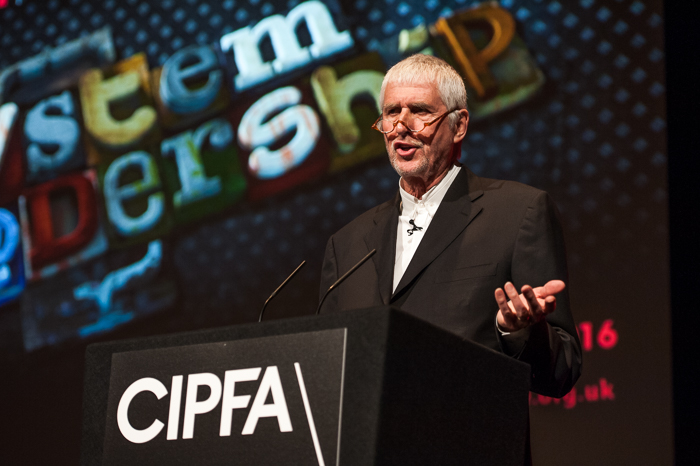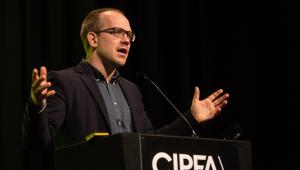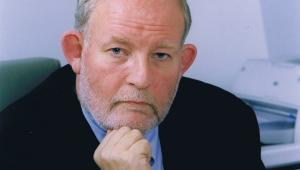
Professor Michael Parkinson Photo: Rafael Bastos
Speaking in Manchester, Professor Michael Parkinson, executive director of the Heseltine Institute for Public Policy and Practice, said that Brexit presented a number of challenges for cities, which included city regions splitting on the referendum.
City leaders, including the new directly elected mayors being introduced to combined authorities, needed to ensure that the prosperous parts of an area were connected to the less prosperous ones in order make sure cities shared in a common agenda, he told CIPFA delegates.
Prior to the Brexit vote, Parkinson said the government was “close to a good place” on urban and regional policy, with devolution deals agreed across cities in England.
However, it was now more difficult, he concluded, and mayors and other leaders should therefore make the case again for further devolution.
“The authors of the policy have gone – Cameron’s gone, Osborne has gone, Jim O’Neill was Osborne’s person, Michael Heseltine was Cameron’s advisor. The authors are not going to be in power much after next week.
“It is very important that our city region leaders go to Westminster and demand that they stick with this agenda. Devolution is half way unfinished, a lot of legislation is still to be passed, and it is desperately important that this argument is not lost. Even if government is not against the policy, the pressures upon it means it could slip off the agenda.”
Parkinson also highlighted that, following the vote, there were questions over the availability of EU resources for regeneration projects in the short, medium and long term.
Greater Manchester estimates that £300m of investment a year in the 2014-20 period could be at risk, he noted, and there could now be a big question over how regeneration will be financed.
“Our city region leaders again need to be giving every comfort they can to the private sector to continue to invest, and encouraging the government to encourage the private sector to continue to invest.
“It does seem to me that this is a very important agenda that we must all tackle, otherwise I think we will see a growing gap again between north and south and the UK and Europe.”




















